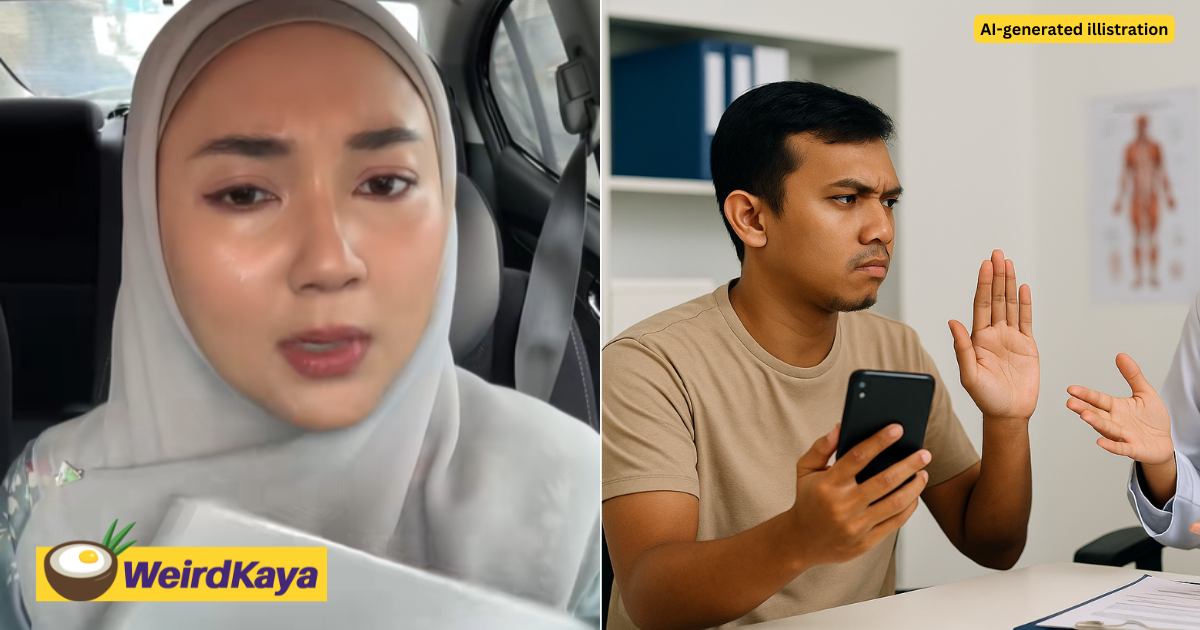The rise of artificial intelligence (AI) platforms such as Google Gemini and ChatGPT has made it easier than ever for individuals to obtain quick answers to health concerns.
But not all the advice given online is accurate, as one Malaysian doctor recently highlighted in a viral TikTok video.
Came in demanding specific injection
Dr Rusydina, a general practitioner who shared her experience, recounted an incident involving a foreign male patient who came to her clinic demanding only a specific injection and antibiotic medication.
The man refused to undergo a consultation, insisting he already knew what medicine he needed and was unwilling to pay for a doctor’s assessment.
He didn’t want to consult. He just wanted to pay for the medicine and injection,” Dr Rusydina explained, adding that antibiotics cannot simply be given without proper examination.

When pressed for details, the patient eventually disclosed that he had been experiencing discharge from his genitals for several months.
To the doctor’s concern, the medication he demanded turned out to be for a sexually transmitted disease (STD).
Rejected the doctor’s prescription
Upon examination, the patient was diagnosed with gonorrhea, a common STD that requires medical treatment.
Despite this, he denied having sexual relations with others and was reluctant to accept the diagnosis.
Dr Rusydina explained the condition and advised that his partner should also be treated to prevent reinfection. She then prescribed an injection alongside other, more effective antibiotics.

However, the patient remained adamant, rejecting the doctor’s prescription and insisting on the treatment recommended by ChatGPT.
Should not over rely on AI
Frustrated, Dr Rusydina reminded viewers that while AI tools like ChatGPT can be useful for learning, they should not replace medical expertise.
We went to medical school, studied textbooks, passed exams—long before ChatGPT existed. It’s just an assistant, not a substitute for proper medical knowledge,” she said.
The case has since sparked discussion online about the growing reliance on AI platforms for health advice.
While tools like ChatGPT can provide quick information, medical professionals stress that they should never replace proper diagnosis and treatment by qualified doctors—especially for serious conditions such as STDs.



